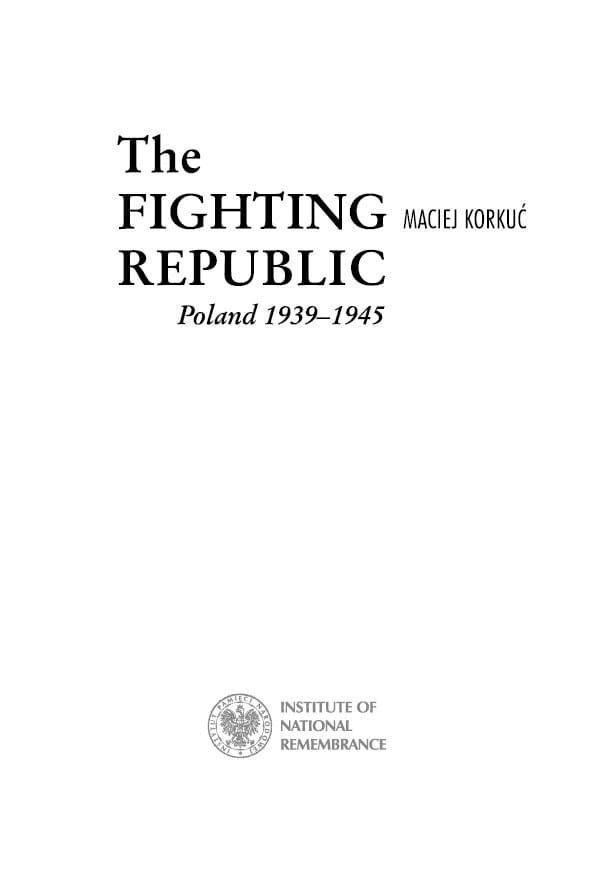
The Fighting Republic: Poland 1939-1945, by Maciej Korkuc
(For professors, college students, and interested adults) A PDF of this book can be read at this link. The following is the Foreword by Dr. Karol Nawrocki, President, The Institute of National Remembrance.
“In May 1945, Western Europe was celebrating victory over Germany. At that time, Central and Eastern Europe was already completely controlled by the Soviet Union. The Polish society was to enjoy neither freedom, nor independence.
When the United Nations was set up in San Francisco, US, Joseph Stalin refused to allow Poland to be represented by its lawful state authorities. However, the free world could not imagine that the state which had been the first to militarily oppose the aggression of Adolf Hitler’s German Reich might not be among the organisation founding members. This led to a situation in which Poland, as the only state in the world, was registered as one of the UN founders, despite the fact that it did not even have its own representation in the organization.
In 1939, Poles had to fight on their own against the combined aggression of two totalitarian states, Germany and the Soviet Union. Poland was defeated, but it did not surrender. It did not lay down its weapons. It did not passively wait for independence to happen.
The Polish Armed Forces stood up for Norway and France. Then, they fought in Africa, and in 1944 helped to free Italy, France, Belgium and Holland. The Polish Underground State even ran civil and military defence in the occupied country. The government in exile co-founded the anti-Axis coalition, and mobilized international public opinion to react to German crimes and acts of mass genocide, including the Holocaust.
Poles believed that after the allied forces defeated the German Reich, Poland’s contribution to the victory would bring the country the place it deserved in the family of free nations. Their hopes did not come true. As the war was coming to an end, the Yalta decisions foreshadowed another communist enslavement by the Soviet Union.
This book recounts the special nature of the Polish war experience. It is the resistance to the Yalta arrangements that later Polish rebellions against the enslavement were rooted in, and they resulted in the “Solidarity” movement, which significantly contributed to the fall of communism.
In the world of new wars and dangers, the Polish quest for independence at that time can still inspire all those who fight for freedom.”
